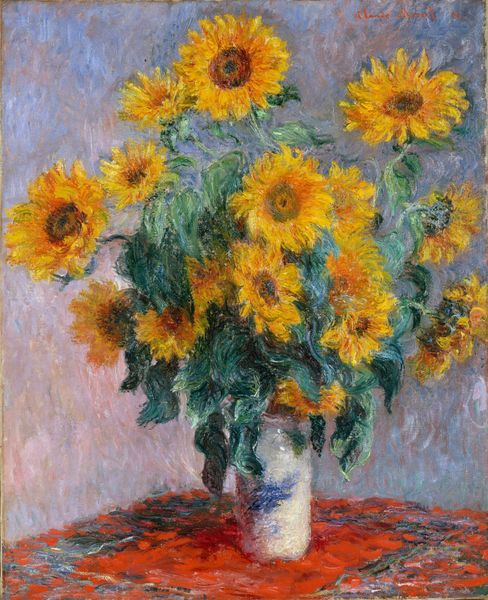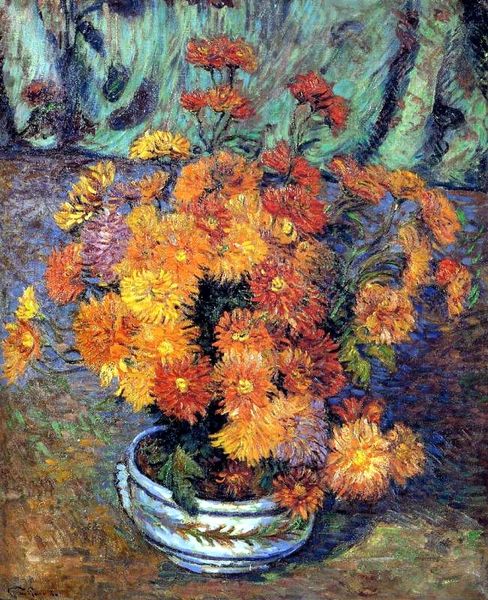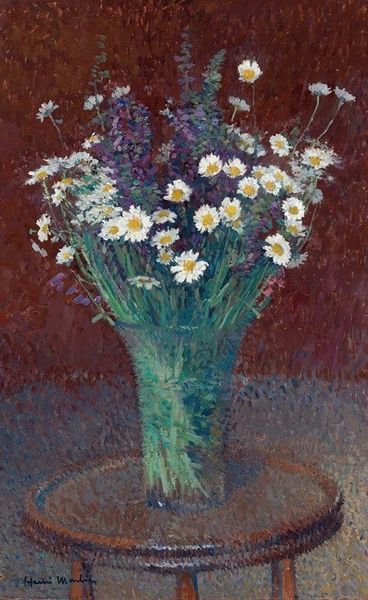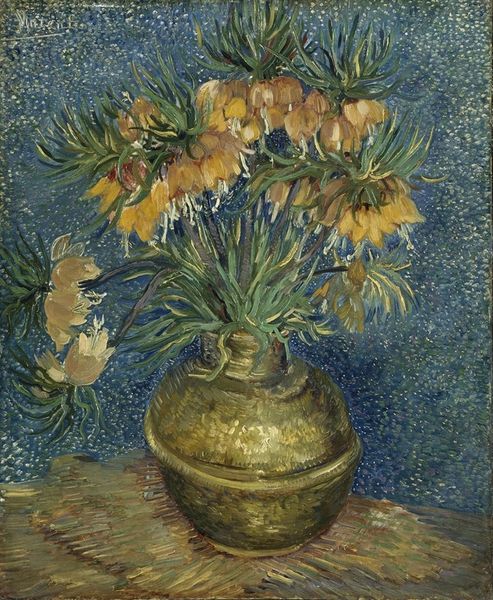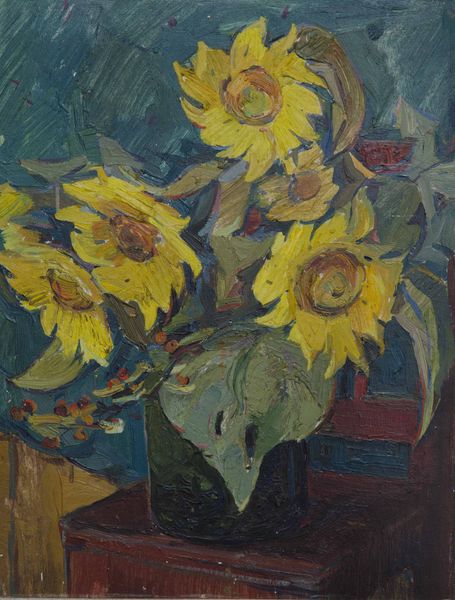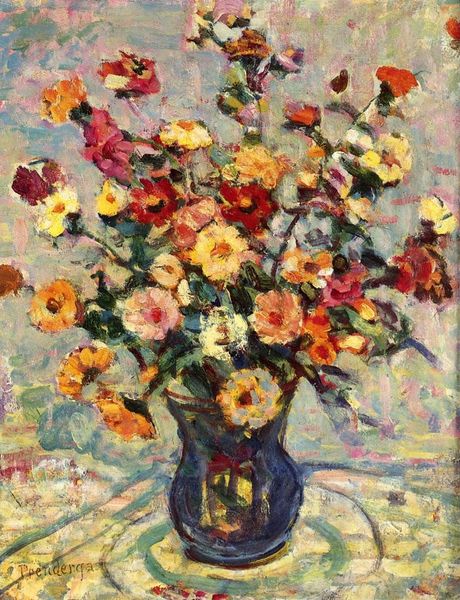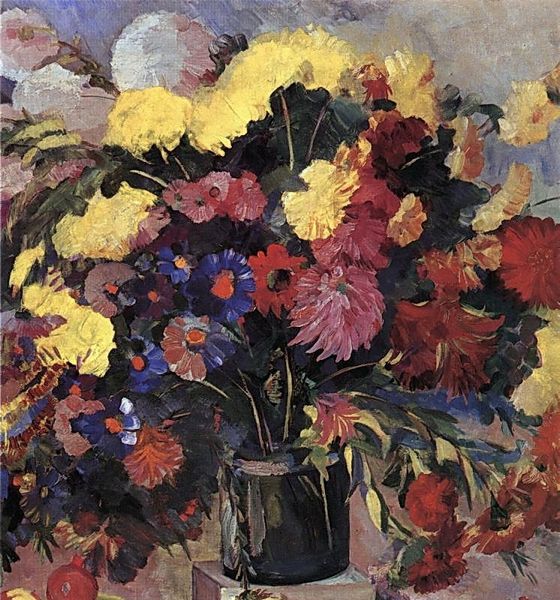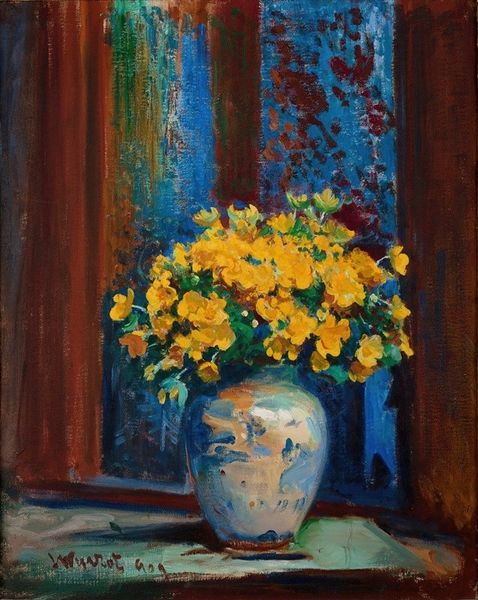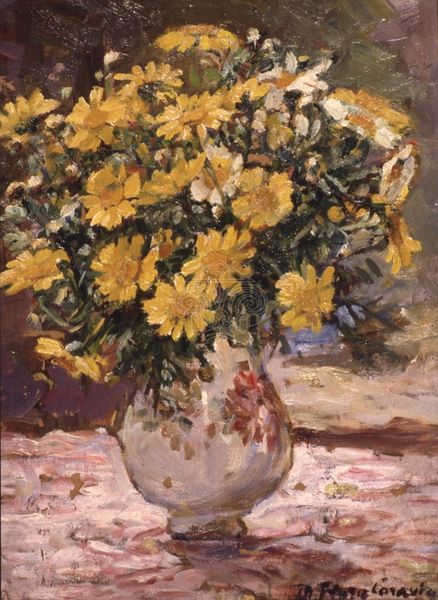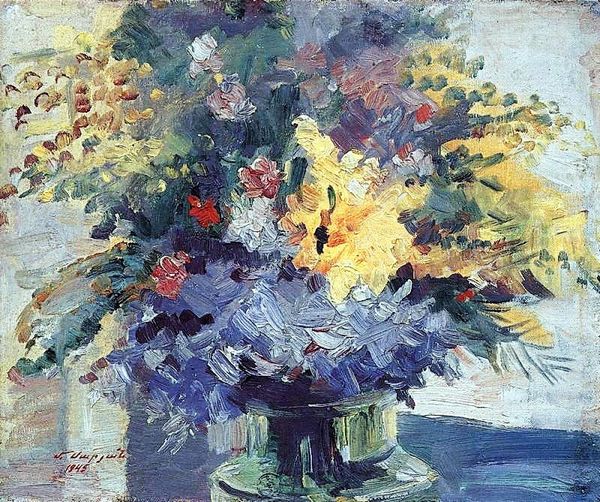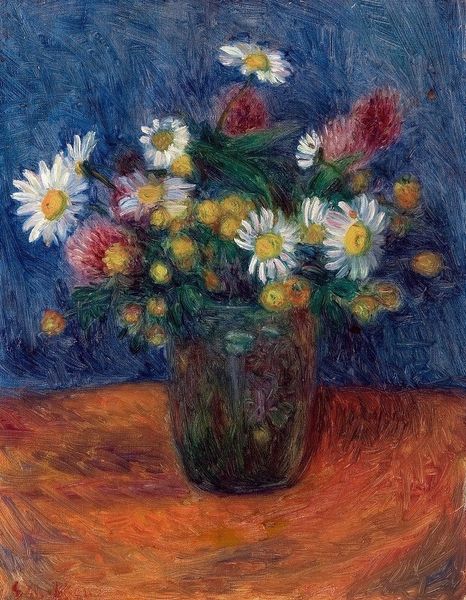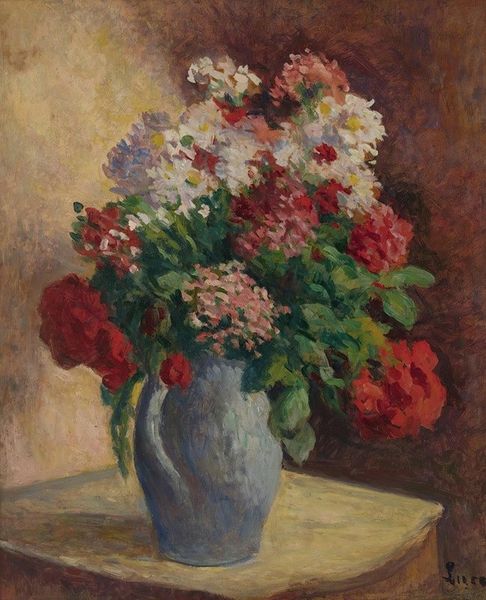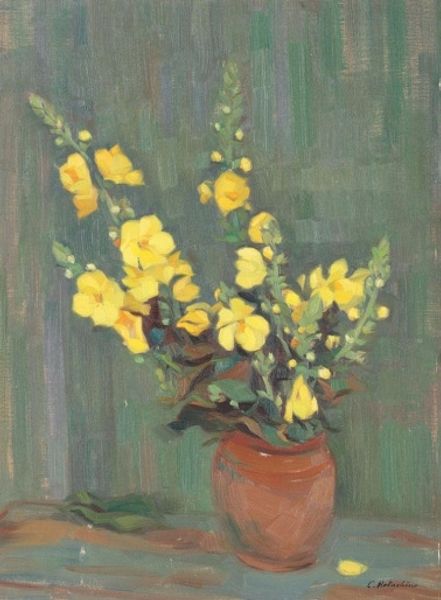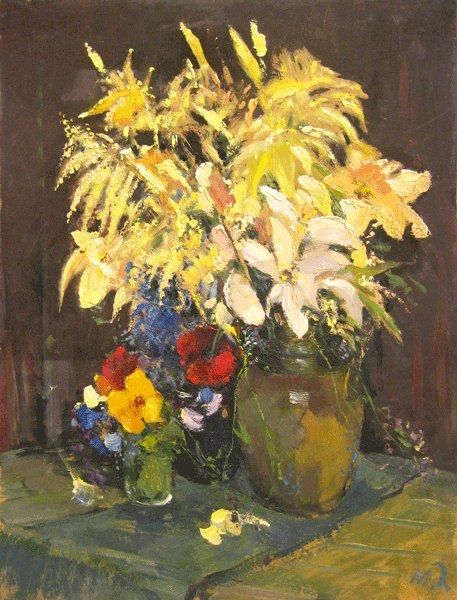
painting, plein-air, oil-paint
#
portrait
#
painting
#
impressionism
#
plein-air
#
oil-paint
#
landscape
#
impressionist landscape
#
oil painting
Copyright: Public Domain: Artvee
Editor: So, this is Claude Monet's "Jerusalem Artichoke Flowers" from 1880, painted in oil. It's strikingly bright. I am intrigued by its vibrant color, it makes the composition feel rather celebratory and joyful. What do you see in this piece that maybe I'm missing? Curator: I see a powerful assertion of the domestic space as a site of radical potential. Remember, this was painted during a time of great social upheaval in France. How might we read the overflowing abundance of these Jerusalem artichoke flowers as a subtle, yet subversive, act of claiming space, particularly for those often marginalized in the art world and beyond? Editor: Claiming space, that’s an interesting point! I hadn’t really considered that. Does the choice of subject matter – a simple bouquet – play into that at all? Curator: Absolutely. Consider the hierarchy of genres prevalent at the time. Grand historical paintings were seen as the ultimate artistic expression, while still lifes were often relegated to a lower status. Monet, by focusing on these flowers, elevates the everyday and the personal, challenging those established power dynamics within the art world. Who decides what is "worthy" of being painted, and what voices are being silenced in that decision? Editor: I see, so it’s about redefining what's considered important or valuable in art and maybe even society, pushing back against traditional norms. Curator: Precisely! And within that vibrant yellow, consider who has historically been associated with those colors or flowers and what those historical contexts can tell us about the potential political implications of portraying them so boldly. What does it mean to center them in a moment of historical and social transformation? Editor: That really shifts my perspective. I’ll definitely be looking at Impressionist paintings differently from now on! Curator: Excellent! It’s through this lens of inquiry, constantly questioning and contextualizing, that we can truly appreciate the rich layers of meaning embedded within even the seemingly simplest of artworks.
Comments
No comments
Be the first to comment and join the conversation on the ultimate creative platform.
